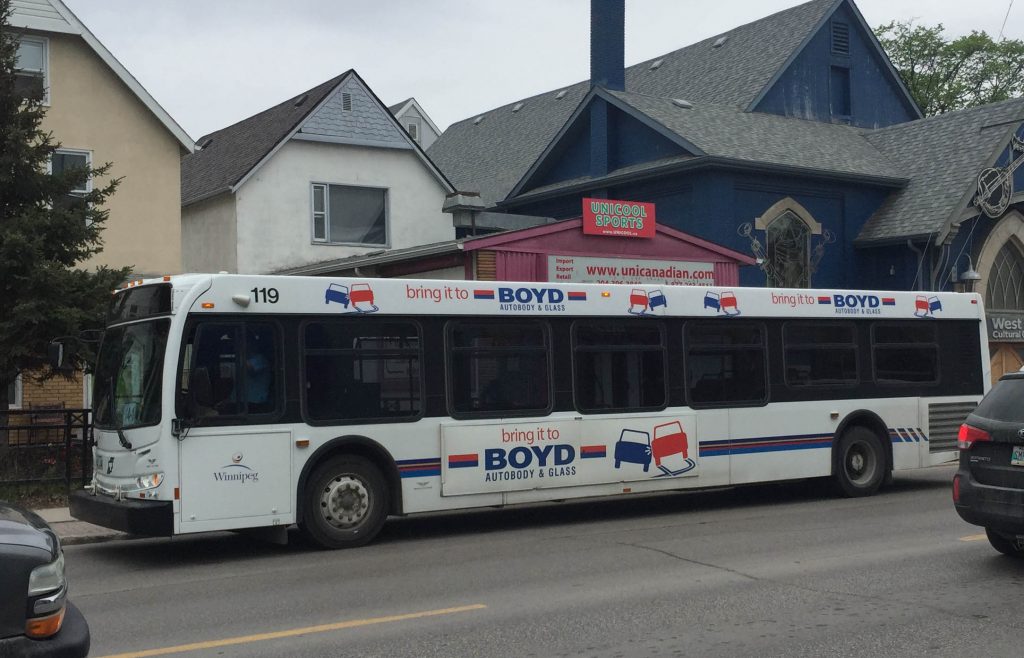By Chris Melnick

Included on any list of COVID-19 heroes must be public transit drivers. Yet their workplaces are not safe from COVID-19. In the US, at least 100 bus drivers have died from COVID-19. Here in Winnipeg, transit drivers have been deemed essential by Mayor Brian Bowman but they have not, until very recently, been afforded any protections against this deadly disease despite their continued exposure to the public.
A full suite of Personal Protective Equipment (PPE) for each driver must be provided by the City of Winnipeg to achieve a safer work environment on public buses. The need for employers to provide PPE to employees is now a common place understanding. On 24 April 2020, the Canadian Chamber of Commerce recognized the need to provide workers with PPE as an essential tool to re-open the economy. Although the first case of COVID-19 was announced in Canada roughly two and a half months ago, it is only within the last few weeks that sanitizing hand gel and masks have been made readily accessible to Winnipeg bus drivers. The issuing of safety gloves is a logical next step.
Some time ago, Winnipeg Transit began using only those buses with safety shields in response to the pandemic. These were installed as a physical safety measure from assaults. Unfortunately, they do not go high enough to protect the drivers from virus droplets emitted by passengers. It would be prudent, in addition to PPE, to install shields that protect the drivers such as can now be found in grocery stores and pharmacies throughout Winnipeg and far beyond.
Social distancing, defined as maintaining a distance of six feet from others, is a main tool in restricting the spread of COVID-19 and is being continually called for by Dr. Theresa Tam, Chief Public Health Officer of Canada and Dr. Brent Roussin, Chief Provincial Public Health Officer, Province of Manitoba. Mayor Brian Bowman has sent out city employees acting as Community Ambassadors to inform Winnipeggers of what social distancing looks like and the City has the power to charge fines for those who refuse to heed the call. Knowing this, it is baffling when one considers that to date, there have been no physical actions to protect drivers and passengers. Social media and marketing to enforce social distancing on public buses is simply not enough.
Simple, low cost actions to establish social distancing could be done such as utilizing tape on seats throughout the bus. Line markings on bus floors could clearly designate appropriate intervals, as is being done in grocery stores and financial institutions, providing passengers with a clear guide to social distancing. Establishing front door entry and rear door exit only guidelines for those who are able, could limit traffic directly around the drivers and passengers alike. An effective public education campaign could be rolled out to ensure passengers understand how to behave on buses during the time of COVID-19.
To ensure the success of the above social distancing measures, ridership on buses must be limited to 10 passengers, even during times of higher ridership. To deal with higher ridership, the deployment of more buses on busier core routes and informing riders of the new schedule must be reflected on schedule boards and apps, so riders understand the changes. This means of course, that having a number of drivers ready for redeployment is crucial.
However, the City recently announced a move to the spring schedule and the laying off of roughly one quarter of its drivers, then reinstated 38 buses, without consultation with the Union. True, certain routes are experiencing reduced ridership. Other routes, such as those in the downtown and inner-city continue to experience high ridership. These routes are often used by essential workers to get to and from their places of employment, as well as by low-income people, for whom the bus is their only mode of transportation. Winnipeg Transit is aware of the pre-lay-off over-crowding. The schedule change and layoffs go against what’s needed. Winnipeg must do more than monitor the situation.
It is confounding as to why the City of Winnipeg is laying off of so many professionally trained transit drivers, which will impact the short and long-term ability of Winnipeg Transit to perform effectively, the workers themselves and the local economy. It is important to take all precautions during this first wave to ensure we know how to deal effectively with all subsequent waves until a vaccine is available.
Premier Pallister has just announced a phased re-opening of the province of Manitoba, however the province has not provided any relief to municipalities, who by law cannot run a deficit, to deal with revenue short falls such as a slump in transit fares due to COVID-19. Manitoba must step up and help Winnipeg with revenue shortfalls so local economies can open up safely.
Recently, Prime Minister Trudeau announced funding for municipalities to be used for an increase in wages/salaries of essential workers. It would be most prudent to include the Winnipeg bus drivers in the groups that would realize this benefit.
On 11 April 2020, I sent a letter to Councillor Matt Allard, Chair of the Transit Advisory Committee (TAC) informing of my above noted concerns and several others. On 15 April, Councillor Allard, informed me that he was calling a meeting of the committee to review my concerns. On 27 April I sent a letter to Mayor Bowman further expressing concerns. A TAC meeting has been set for 17 June 2020. As I understand that the Amalgamated Transit Union Local 1505 is supportive of the suggested actions above, I urge Councillor Allard and the TAC members to direct Winnipeg Transit to implement my suggestions. This could be a matter of life or death.
Chris Melnick is a private citizen.


